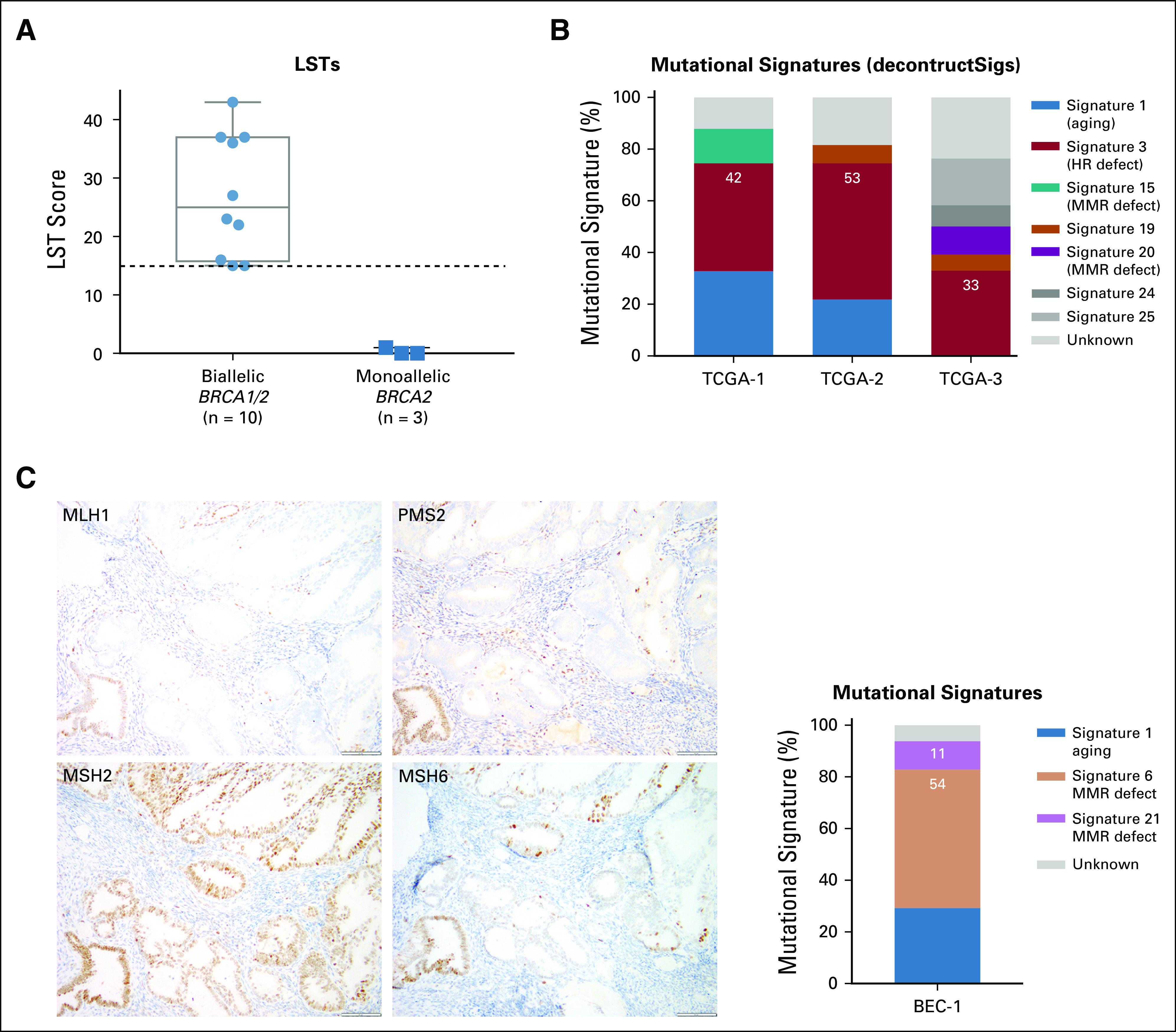FIG 3.

Genomic features of homologous recombination (HR) DNA repair deficiency. (A) Large-scale state transition (LST) scores in germline (gBRCA1/2)-associated endometrial cancers with biallelic (n = 10) and monoallelic (n = 3) BRCA1/2 alterations. Dashed line indicates the cutoff (≥ 15) for high LST scores.26 Biallelic BRCA1/2 alterations are associated with high LST scores. (B) Mutational signatures defined by deconstructSigs24 in three gBRCA1/2-associated endometrial cancers from The Cancer Genome Atlas (TCGA) subjected to whole-exome sequencing.13,14 Mutational signatures are color coded according to the legend on the right. All three germline gBRCA1/2-associated endometrial cancers have a dominant homologous recombination DNA repair deficiency–related mutational signature 3. (C) Immunohistochemical analysis of the (left) DNA mismatch repair (MMR) proteins MLH1, PMS2, MSH2, and MSH6 and (right) mutational signatures of case BEC-1, a monoallelic/ sporadic gBRCA1/2-associated endometrial cancer. Mutational signatures defined by deconstructSigs24 are color coded according to the legend on the right. BEC-1 shows loss of MLH1 and PMS2 expression, MLH1 promoter hypermethylation (not shown), and dominant mutational signatures 6 and 21 associated with defective DNA MMR.
